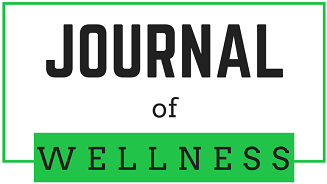
Funder
The authors received no specific funding for this work
Conflict of Interest
The authors have no conflict of interest to declare for this work
Abstract
Introduction: Burnout has been described as “a state of mental and physical exhaustion related to work or caregiving activities.” Among resident physicians, burnout is a serious concern that can lead to medical errors and negative patient outcomes. To combat burnout among physiatry trainees during the COVID-19 pandemic, an innovative wellness retreat was created and implemented at the University of Miami’s Physical Medicine and Rehabilitation (PM&R) Residency Program in March 2021 and February 2022.
Methods: The retreat curriculum was designed by the PM&R Residency Wellness Committee and supported by departmental funding. The retreat(s) consisted of three strategies: education and discussion on burnout, instruction and immediate practice in wellness techniques, and team building and bonding activities. All residents (n = 24) and fellows (n = 2) participated in a one-day wellness retreat. The main outcomes included the Copenhagen Burnout Inventory (CBI) questionnaire, administered at three time points: pre-retreat, 3 weeks post-retreat, and 3 months post-retreat.
Results: The wellness retreat included 26 trainees. Their mean age was 31±2 years, 76% were male, 24% female, and self-identified ethnicities were 43% Hispanic, 29% White, 19% Black, and 9% Asian. The highest pre-retreat burnout scores were observed in the PGY-3 class; and the greatest overall improvements were observed in the PGY-2 class after the wellness intervention. Although not statistically significant, PGY groups of trainees trended toward decreased burnout after the intervention. Specifically, residents reported lower CBI scores at 3 weeks post-retreat (except for client-related burnout) and even lower CBI scores at 3 months post-retreat, indicating less total burnout (-11%), personal (-15%), work-related (-10%), and client-related burnout (-5%). Before the wellness retreat moderate burnout mean scores (50-74) were observed among PGY-2 residents in total burnout and work-related burnout, PGY-3 in personal and work-related burnout, and PGY-4 in personal burnout. At 3 months post-retreat, moderate burnout mean scores were only observed among PGY-3 in personal burnout.
Conclusion: In response to the COVID-19 pandemic, this retreat was well received by PM&R residents and may have contributed to improved overall and specific burnout scores amongst participant trainees at all stages.
DOI
10.55504/2578-9333.1266
Recommended Citation
Amirianfar, Edwin; Acosta, Oliver; Tiozzo, Eduard; Gober, Joslyn; and Verduzco-Gutierrez, Monica
(2025)
"Reducing Burnout Among Physiatry Trainees During the Pandemic: Instituting a Wellness Retreat,"
Journal of Wellness: Vol. 5
:
Iss.
3
, Article 9.
DOI: https://doi.org/10.55504/2578-9333.1266
Available at:
https://ir.library.louisville.edu/jwellness/vol5/iss3/9
Included in
Alternative and Complementary Medicine Commons, COVID-19 Commons, Movement and Mind-Body Therapies Commons, Recreational Therapy Commons
